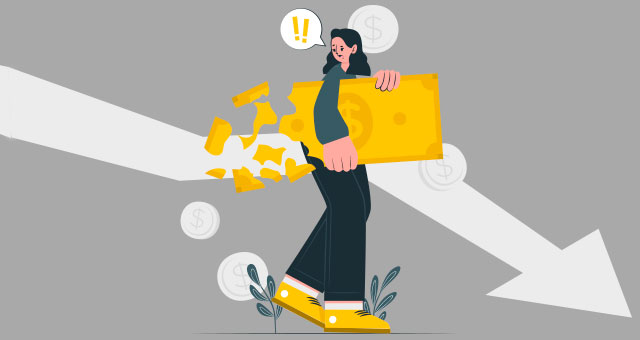
Unveiling the Money Mistakes You Might Not Know You Are Making
Every aspect of our lives is affected by money management, yet many of us make mistakes without even realizing it. These errors have the potential to gradually undermine our financial security and keep us from accomplishing our objectives. The good news is that you can always snap back and figure out how to avoid them. To secure a better financial future, we’ll examine some common money mistakes that frequently go unnoticed in this blog post and explain how to avoid them.
1. Ignoring Small Expenses
Often, a dollar at a time is how great fortunes are lost. It’s easy to overlook small, everyday expenses such as morning coffee or lunch out. Individually, these expenses may seem insignificant but can add up to a substantial amount over time. For example, spending only $25 a week on eating out costs you $1,300 annually, which you can use as an extra payment for a credit card bill or an auto payment. Therefore, tracking your spending, even on seemingly trivial items, can help you identify where your money is going, and you can make adjustments accordingly.
2. Neglecting Emergency Savings
Financial emergencies can arise at any time in your life, from medical bills to auto repairs. Yet, many people fail to prioritize building an emergency fund. Without this financial cushion, you might get trapped in a debt cycle by using your credit cards or taking out loans to pay for unforeseen costs. To avoid this crisis, you should save money for an emergency fund to cover three to six months of living expenses.
3. Overlooking Subscription Services
Subscription services have become increasingly popular in today’s digital age, offering convenience at a recurring cost. Even though each payment may only be ten or twenty dollars, these can add up to hundreds of dollars over time. Take stock of all your subscriptions and evaluate whether you’re truly getting value from each one. Cancel those that are no longer essential or underutilized. Additionally, apps are available to help you cut your subscriptions; some even handle the cancellation process for you.
Sometimes it can be advantageous to ask a family member or a friend to add you as a user on their account if you want to maintain your membership.
4. Not Investing For The Future:
Many individuals delay or neglect to invest for their future, whether for retirement, education, or other long-term goals. By not investing, you miss out on the opportunity for your money to grow over time through compound interest. Start investing early, even with small amounts, and take advantage of retirement accounts and employer-sponsored plans. For instance, if one starts saving at age 25 instead of age 35, the difference in savings by the time one is 65 could be 200%, assuming a 7% average annual growth rate.
5. Failing to Negotiate
Whether it’s negotiating a salary, a contract, or a purchase, failing to negotiate can cost you money in the long run. Many people shy away from bargaining as they fear rejection or confrontation, but it’s a valuable skill that can save you significant amounts over time. Do your research, know your worth, and ask for what you deserve.
6. Using Credit to Make Purchases Instead of Saving
While financing is required for certain purchases, like a house, saving money can help achieve many other goals without incurring debt. Whether it’s a high-end refrigerator or a new laptop, financing can increase the cost of those purchases. Furthermore, you might believe you can afford far more than your income permits because credit card purchases are simple.
Determining what you want to buy, how much it will cost, and, ideally, when you want to get it are better strategies. Once you reach your target, you can set aside money weekly or every month and use it to purchase the item.
7. Ignoring Credit Card Debt:
Credit cards can be convenient tools for managing expenses, but they can also lead to crippling debt if not used responsibly. Making only the minimum payments or ignoring credit card debt can result in mounting interest charges and damage your credit score. Prioritize paying off high-interest debt as quickly as possible to regain control of your finances.
Bottom Line
You can improve your financial status by being proactive and aware of these money mistakes. Whether you are tracking your spending, building an emergency fund, or investing for the future, every small change can impact your long-term financial well-being. Don’t let these hidden mistakes hinder your financial success; instead, use them as opportunities to learn and grow toward a more secure future.


